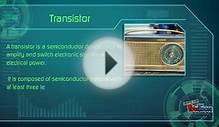
 More than half of computing and IT graduates get jobs in technical fields, such as computer operations and programming. Photograph: Corbis
More than half of computing and IT graduates get jobs in technical fields, such as computer operations and programming. Photograph: Corbis
What will I learn?
Taking a computer science course will mean you will be studying a subject at the very forefront of technology and innovation. Computers are everywhere, and the demand to make them smaller, work more quickly, and be fitted with new and exciting software has never been greater.
Most computing courses tend to focus on software engineering - things like database design, network systems, computer hardware, the internet. But there are other options in this field, such as artificial intelligence, cybernetics, and multimedia and games design, and apps design.
You will be expected to be good at maths and an interest in physics would also help, as most of the theory will touch on both subjects.
Courses should have a heavy practical emphasis, so you'll learn how the professionals do things, and probably be taught by some of them. You should also get plenty of group work experience.
Some universities are encouraging students to develop and market their own ideas, and, through this, a number of students manage to do some freelance work while they study, which will look good on the CV and will also bring in some extra cash.
Some courses are developed with employers to ensure their relevance, which means you'll graduate with up-to-date knowledge and, hopefully, plenty of names in your contacts book.
What skills will it give me?
The practical nature of many of these courses will mean you will know how to solve technology problems.
You will learn how to analyse information and how to put the theory, often about large and complex systems, into practice.
You should graduate equipped with the professional and interpersonal skills needed to work in the industry. You should develop teamwork, project-management skills and commercial awareness, as well as critical-thinking skills.
Perhaps, most important, you will have gained a good insight into a specialised field. Although the majority of people own or use computers, building and maintaining them requires skilled individuals.
What job can I get?
More than half of computing and IT graduates get jobs in the industry in technical fields, such as computer operations, computer systems sales and service, programming, software development, software engineering, or find work as analysts and programme writers. This could mean working in specific IT firms or in companies outside the industry that use computers as a core part of the job, perhaps managing the computing needs of an advertising firm's employees.
If you graduate bursting with ideas, or with some freelance work under your belt, then perhaps you could consider setting up your business or developing your existing work. After all, Google, YouTube and Twitter didn't just happen on their own.
What will look good on the CV?
· The ability to operate computer equipment
· To ability to deploy appropriate theory and practice
INTERESTING VIDEO












